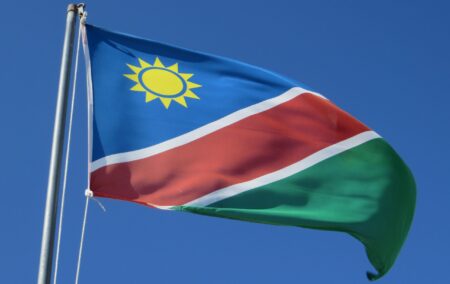Namibia goes to the polls today to elect a new president and parliament. It becomes the latest among a large number of countries which held elections this year.
As in many other countries around the world, the incumbent governing party SWAPO faces an unprecedented challenge, with some observers believing that the party which has governed the country since independence in 1990 could either lose its parliamentary majority or even be voted out of power.
SWAPO’s candidate is the country’s current vice-president, Netumbo Nandi-Ndaitwah, who will become Namibia’s first woman president if she wins.
However, she will face a stiff challenge from a number of quarters, including from Panduleni Itula, a former SWAPO member, who ran for president as an independent in 2019 and won nearly 30% of the vote. He is now running on the ticket of a party he founded, the Independent Patriots for Change, which will be competing in its first general election, after having acquitted itself rather well in the 2020 local government poll.
A number of parties to SWAPO’s left, such the Landless People’s Movement (LPM) and Affirmative Repositioning (AR), are also expected to do well.
After dominating Namibian elections over the past three decades, SWAPO has lost significant support in recent polls. In the 2019 election it won 65% of the vote: a significant percentage. However, this was the first post-independence election where it won less than 70% of the vote.
There has been very little polling of Namibians ahead of the election, but observers believe that SWAPO could suffer the fate of many incumbent parties around the world this year. It could lose significant support and be forced to form a Government of National Unity, as the ANC was obliged to do in neighbouring South Africa.

